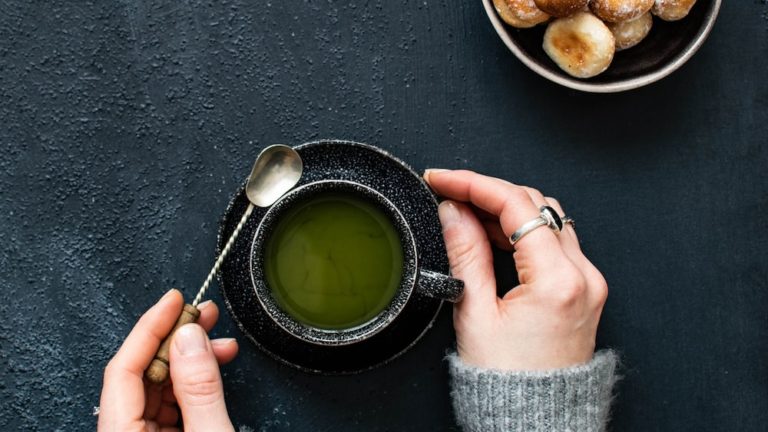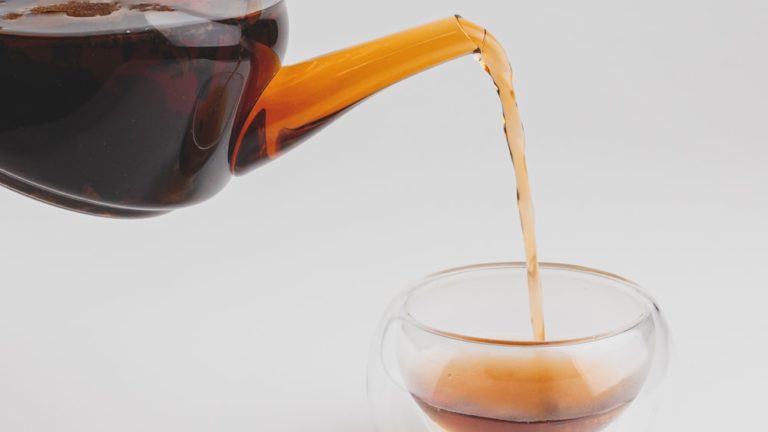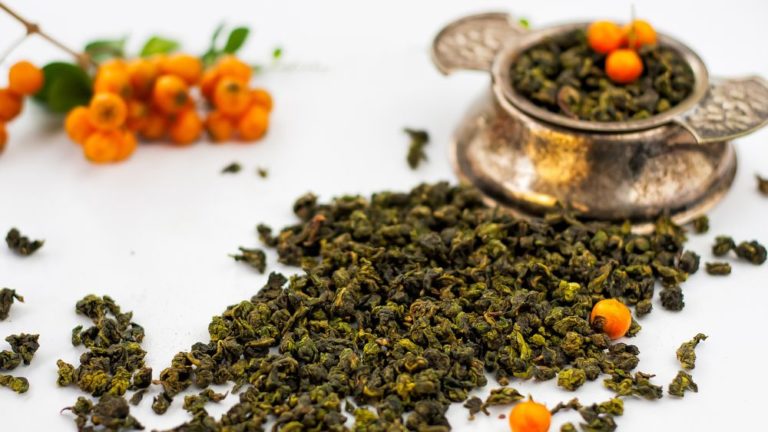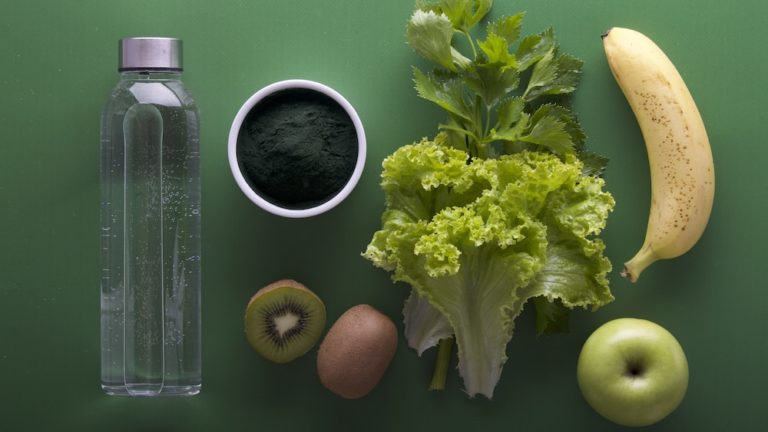Green Tea With Milk: Exploring The Effects And Myths
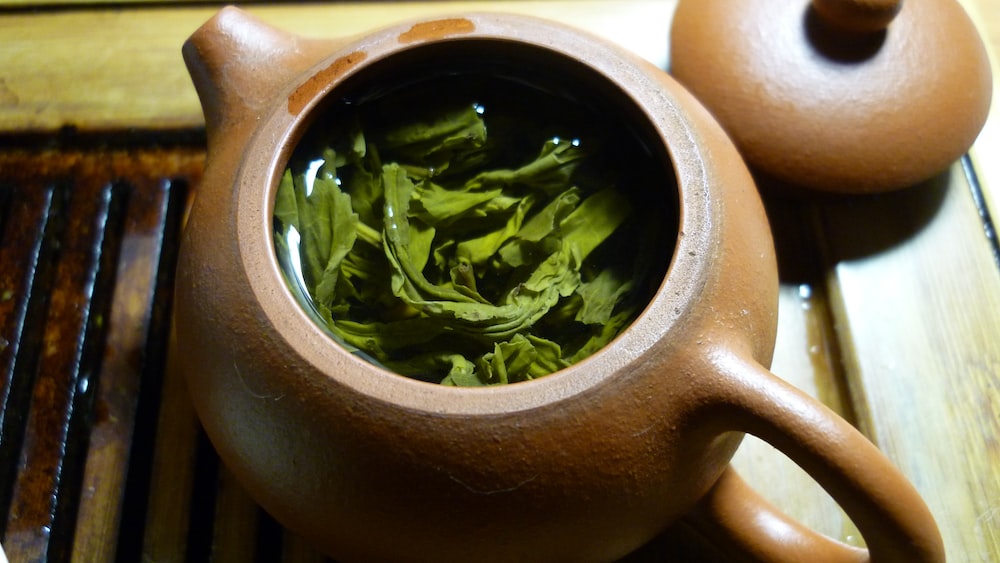
Green Tea With Milk: Exploring The Effects And Myths
Hello, you insatiable tea lovers and curious minds! Ever find yourself trembling on the teeter-totter of tea traditions, wondering whether to add milk to your green tea or not? You’re not alone! It seems like the jury is still out on this one in the tea-drinking world. Sure, green tea is a bewitching brew, packed with amazing health benefits. But what happens when you go off the path and add a dash of milk to your green tea? Sit tight, folks! We’re about to embark on a journey unveiling the myths, mysteries, and the science of green tea with milk.
Adding milk to tea is as old as the hills, especially in the western world where a piping hot “milky tea” is comfort in a cup. Yet, when it comes to green tea, it seems the tables turn and the stakes rise. Does milk diminish the benefits we’ve been promised from that lush, antioxidant-rich green tea? Or does it create a delicious fusion that should be celebrated?
The Debate Around Green Tea with Milk
Ah, the age-old debate – the Humpty Dumpty of the tea world. No, I’m not milking this for dramatic effect, folks. It’s real!
Understanding the Controversy
Let me brew this controversy down for you. On one side, we’ve got the staunch tea purists who believe that adding milk to green tea is nothing short of a cardinal sin. They say it’s like adding a dollop of ketchup to your caviar – just a culinary no-no! The purists argue that milk could alter the delicate flavor profile of the green tea and that it masks the subtle undertones that make each brew unique. Furthermore, they fear it may interfere with the highly touted health benefits that green tea offers.
On the other hand, you’ve got the daring explorers who are unafraid to blaze their own trails. They see adding milk to green tea as a chance to create a unique taste experience, creating a milder, creamier version of the classic green tea. Health claims become secondary to the moment of adventurous sipping.
Adding milk to green tea is a controversial act that divides tea purists and adventurous explorers.
Popular Opinions and Cultural Practices
Diving into the world of green tea with milk brings you face to face with a myriad of opinions and curiously strong emotions. In places like Japan and China – where tea drinking is a tradition steeped in centuries of history – you’d probably get a wide-eyed stare if you suggest adding milk to your green tea or matcha. Oh no, it isn’t done!
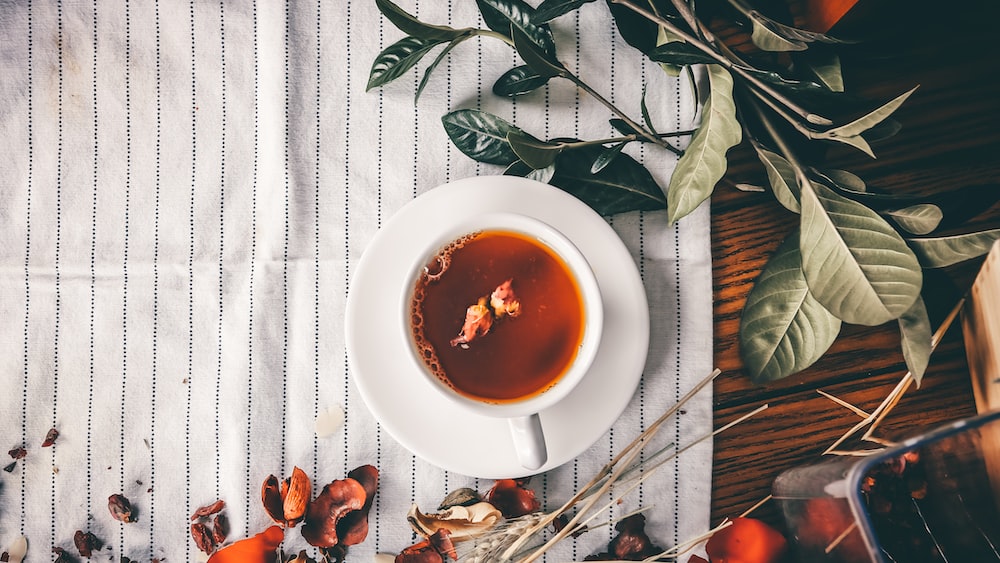
Meanwhile, in the west, adding milk to tea is kind of the norm. Brits add milk to their black tea routinely. So the idea of adding milk to green tea doesn’t really boil their kettle. In fact, matcha latte, an emerging trend, combines green tea and milk and it’s becoming increasingly popular around the world.
The Science Behind Green Tea and Milk
No more yoyo-ing on the issue, folks! We’re getting scientific now.
The Nutritional Composition of Green Tea
Let’s start with a look at what exactly is in a cup of green tea. Though tiny, these leaves host a multitude of magical molecules that contribute to the health boosting benefits and peculiar flavor. The heroes here are mainly antioxidant polyphenols known as catechins, specifically EGCG (epigallocatechin gallate), powerhouse antioxidants known to battle inflammation, heart disease, and even some cancers.
Additionally, green tea is a source of mood-enhancing amino acids like theanine and arginine. These compounds are responsible for the calming effects often associated with a cup of green tea. Would the dream team of nutrients stay intact when the milk waltzes in?
How Milk Interacts with Green Tea
Scientists sure love to peek into our tea cups. And what they’ve found is both fascinating and a bit controversial. Some studies suggest that casein proteins found in cow’s milk may bind with the catechins in tea, affecting their absorption. This could potentially decrease the antioxidant benefit of the tea.
However, research isn’t as clear cut as it might seem. Others have voiced that while the milk proteins may bind to the catechins, this does not necessarily result in decreased overall antioxidant activity in the body. It’s complicated, isn’t it?
The impact of adding milk to tea on its antioxidant benefits is still uncertain, as some studies suggest that milk proteins may bind with the catechins in tea, while others argue that this does not necessarily decrease the overall antioxidant activity in the body.
Pros and Cons of Adding Milk to Green Tea
To milk or not to milk, that’s the question.
Health Benefits and Drawbacks
When you pair green tea with milk, you might just be stirring up a health power-duo. Milk brings a lot to the tea party – protein, calcium, vitamins, the whole shebang! It could actually boost your breakfast green tea into a mini-meal.
However, naysayers warn of a potential showdown happening in your cup. The casein protein in the milk could bind the green tea catechins, lowering their health-giving potential. So, you might be trading off those incredible antioxidant benefits for a creamier taste. To each his own cup of tea, right?
And there you have it – the good, the bad, and the milky about adding milk to your green tea! We’re still stirring the pot and this debate is far from other, folks.
Impact on Taste and Flavor
Ah, the taste and flavor of green tea with milk. It’s like summer and winter colliding, isn’t it? Now, imagine being a tea purist, peering skeptically into your cup. You might even twitch like a rabbit smelling a carrot cake for the first time. But tea blends can sometimes turn out to be the hidden gem you never knew you were missing. Green tea with milk can be one such tongue-titillating blend!
Putting milk in green tea can give your cuppa a creamy, mellower taste compared to the fresh, grassy flavor of green tea on its own. The characteristic bitter edge of green tea can be smoothened by milk, especially if you are using a type of green tea that’s prided for its potent flavor. But remember, taste is an extremely personal affair and depends greatly on individual preference. Some people find the milk softens the robust flavor of green tea, others might feel it all becomes a bit too diluted.
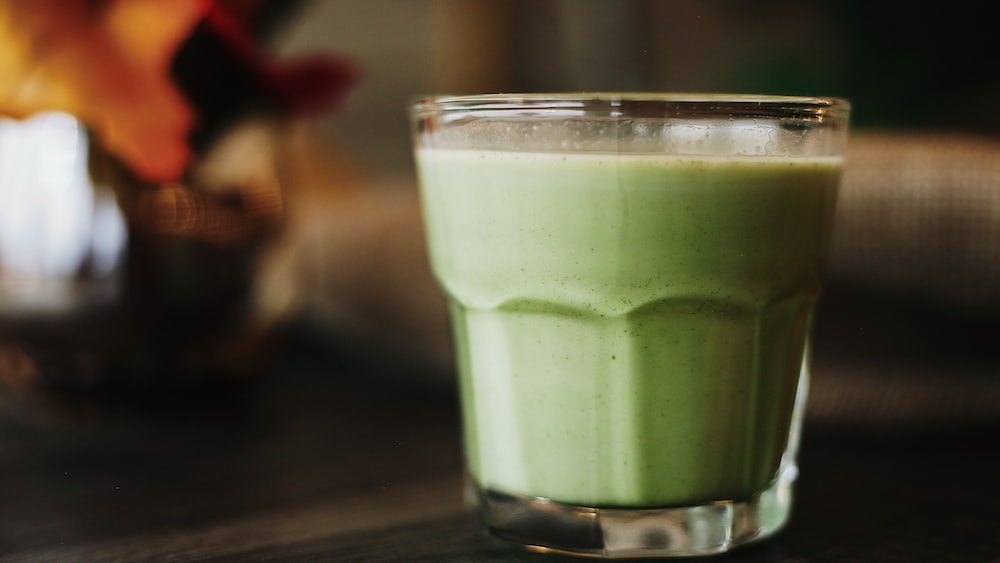
So, will adding milk in your green tea make you the scorned black sheep of the tea-tasting community or a seasoned connoisseur who appreciates an unconventional fusion? That, my dear friends, depends on your preference and your taste buds’ affinity for change.
Types of Green Tea That Go Well with Milk
Let me take you on a tour around a tea lover’s Mecca. We are venturing beyond the horizons of the typical Sencha or Genmaicha. Suitable for brewing a delectable cup of green tea with milk, the standout varieties are none other than Matcha and Hojicha. They may sound like the names of exotic tropical islands, but they are, in reality, types of green tea that pair up quite friendly with milk.
Matcha
In Japanese, ‘ma’ means ground, and ‘cha’ means tea. Matcha is a finely ground green tea powder highly praised for its vibrantly green color, distinctively creamy taste, and frothy texture when whisked. It’s like tasting a home within a tea cup. Almost like a comforting hug that says – hey, it’s all going to be just fine, kiddo!
Milk pairs exceptionally well with Matcha. The creaminess of milk enhances the natural smoothness and umami sweetness of Matcha, giving it a rich, latte-like texture. A Matcha latte is not a rarity in cafes these days, and this combination has been ceremoniously embraced by health freaks, baristas, and caffeine survivors alike.
Matcha, a finely ground green tea powder, is praised for its vibrant color, creamy taste, and frothy texture, offering a comforting and soothing experience like a home in a tea cup.
Hojicha
Next, let me introduce you to the charmer called Hojicha, a type of Japanese green tea that’s roasted instead of steamed like most green teas. This roasting process gives it a unique toasted, slightly nutty flavor while reducing its caffeine content. It’s like the sweet boy next door who you never thought could surprise you, and then, bam, he blows your mind with his charm!
The toasted aroma and mellow flavor of Hojicha complement the creaminess of milk quite well, mellowing out the dairy while simultaneously amplifying its own sweet notes. A Hojicha latte is another fabulous way to enjoy green tea with milk.
Alternatives to Cow’s Milk in Green Tea
Approaching the dairy case in your local store is like walking into a milk-verse. There’s more than just cow’s milk out there, folks! Yes, legends are true. You can indeed meddle with the fabric of convention and use non-dairy alternatives in your green tea!
Oat Milk
Let’s start with the smooth operator, Oat Milk, a plant-based milk alternative that’s quite in vogue at the moment. And why wouldn’t it be? Its creamy texture and mild nutty flavor can easily trick your taste buds into thinking you’re having regular milk.
Not only does it possess textural marvelousness, but it’s also quite versatile when paired with green tea. The inherent sweetness and creaminess of oat milk mellow out the potency of green tea, making it perfect for those who like to take the tea bitterness down a notch.
Oat milk also ticks numerous health boxes: it’s lactose-free, home to heart-helpful beta-glucans, and generally lower in calories than cow’s milk. So go on the diet-friendly side of the spectrum just this once, and I guarantee that you’ll be impressed!
Coconut Milk
Next up is Coconut Milk, the tropical resident of the milk-verse. It’s not for everyone, admittedly, with its full-bodied texture and subtly sweet, distinctive flavor. But for those who like their tea with a little bit of an exotic twist, coconut milk is a surprisingly delicious addition to green tea.
Its silky texture pairs well with the smoothness of green tea, respectfully complimenting without stealing the limelight. It’s like the polite guest at the party who doesn’t seem to mingle much but, when noticed, leaves a lasting impression.
Coconut milk is also loaded with beneficial nutrients, including healthy fats known as medium-chain triglycerides or MCTs. And hey, nothing spells ‘exotic indulgence’ better than a warm cup of green tea with coconut milk, am I right?
Coconut milk is a surprisingly delicious addition to green tea, with its full-bodied texture and subtly sweet, distinctive flavor, and it also offers beneficial nutrients like MCTs.
Soy Milk
For ages, Soy Milk has been the go-to substitute for dairy milk in many households. Holding an uncanny resemblance to cow’s milk in taste and thickness, it plays a decent doppelganger in your cup of green tea.
It has a mild, slightly beany flavor that matches the earthy notes of green tea, producing a synergy of flavors that’s not just intriguing, but also a pleasant departure from the norm. The creaminess of soy milk softens the strong and vibrant flavor of green tea, creating a balance that’s pleasing to the palate.
Moreover, soy milk is a nutritional powerhouse. It’s rich in protein, low in saturated fats and cholesterol-free. Hence, adding it to green tea not only boosts flavor but also amps up the nutritional quotient.
Almond Milk
Last but not by any means least, let’s talk about Almond Milk. This non-dairy prince has gained popularity for its subtle nutty flavor and creamy texture, and makes a respectable partner to green tea.
Its lightly sweet and nutty profile blends quite well with green tea, resulting in a tea fusion that tastes mildly sweet, bit creamy yet characteristically refreshing. Now that’s a taste-tango worth trying!
Furthermore, almond milk is kind to those adhering to low-calorie diets, packed with vitamin E, and has no saturated fats. So, next time you’re brewing a pot of green tea, perhaps consider frothing up some almond milk. After all, experimenting in your own home is half the fun of being a tea enthusiast, right?
How to Make Green Tea with Milk
As much as we enjoy spilling the tea, brewing a spectacular cup of green tea with milk actually calls for a dash of practical strategies, and a pinch of creativity. This isn’t rocket science, dear friends, but rather a symphony of timing, temperatures, and tasteful choices! Cue the dramatic music.
Choosing the Right Tea and Milk
If it’s your first rodeo in the arena of green tea with milk, you might be quivering your whiskers in confusion. After all, with the bewildering array of choices and the very weight of destiny hanging in the balance, how can one possibly choose the best components?
Listen closely, because here’s the secret – it’s all about the match! And I’m not just talking about the champion of all green teas, matcha. The right blend for your green tea with milk depends on your taste buds. If you’re after a mild, sweet flavor, opt for Sencha or Hojicha. For a robust, full-bodied palate, Matcha or Genmaicha would serve you well.
And the milk? My dear companion, the choice of milk doesn’t stop at the fridge door of your dairy section. Venture into the realm of plant-based alternatives like almond, soy, oat and coconut milk. They each bring their own unique twist to the taste and health benefits making this adventure as fun as identifying tea leaves in a high wind!
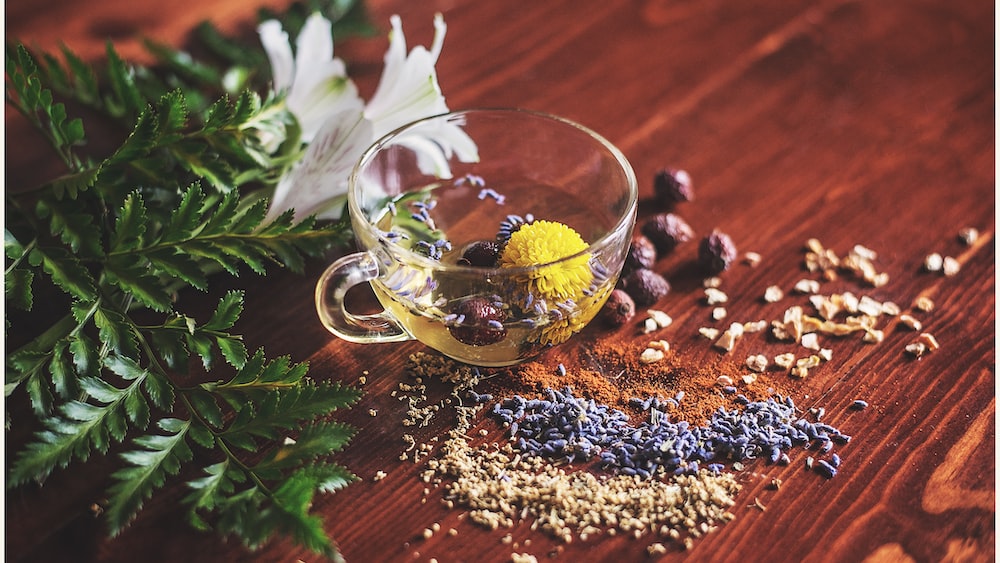
The secret to choosing the best components for green tea with milk is all about finding the right match for your taste buds, whether that be Sencha or Hojicha for a mild, sweet flavor, or Matcha or Genmaicha for a robust, full-bodied palate, while also considering plant-based milk alternatives such as almond, soy, oat, and coconut milk.
Preparation Steps and Tips
Now that we’ve chosen our weaponry, let’s march forward to the battlefield – er, the kitchen. Follow me, my fellow adventurers!
Firstly, brew your green tea. Remember, water temperature and brew duration matter, folks! Too hot or too long and you’ll end up with a bitter brew that mocks your taste buds. Around 175°F (80°C) for 1-2 minutes works well for most green teas.
Next, warm that beautiful milk of your choice – gently, as if it were a sleeping kitten, and stir it lovingly into your freshly brewed tea. Congratulations, you have just created your own conduit of coziness and health, bravo!
FAQs
1. Does Adding Milk to Green Tea Reduce Its Health Benefits?
Adding milk to green tea does not necessarily strip it off its health benefits. This truly depends on the type and amount of milk used. For instance, dairy milk may inhibit the absorption of certain antioxidants, but it’s not the same case with plant-based milk options.
2. What Types of Green Tea Taste Good with Milk?
Green teas with a robust flavor profile, such as Matcha and Genmaicha, generally taste delicious with milk. These teas’ stronger tasting notes are perfect dance partners to the creamy undertones of milk, whether dairy or plant-based.
3. Can Drinking Green Tea with Milk Make You Sick?
Drinking green tea with milk is unlikely to make you sick unless you have specific intolerances or allergies to components found in milk or green tea. As with everything in life, moderation is key!
4. What Are Some Dairy-Free Alternatives for Milk in Green Tea?
Some popular dairy-free alternatives for milk in green tea include Oat milk, Almond milk, Soy milk, and Coconut milk. Each of these options still provides the creamy consistency desired while offering their unique flavors.
Conclusion
In the grand spectacle of tea and tradition, green tea with milk may seem like an unconventional act of rebellion. Yet, it is a tasty reiteration of our relentless quest for comfort, warmth, and a little bit of fun in our tea cups.
Our journey across mountains of matcha and rivers of tasting milk has been delightful, to say the least. From the consideration of flavors to the meticulous balance of health and pleasure, we witnessed the pouring of myriad hues and wellness into our humble cups.
Green tea with milk, dear readers, isn’t just a beverage; it’s a reflection of the excitement we weave into our daily routines. It signifies our willingness to push boundaries, to explore, and above all, to embrace a unique symphony of flavor and health benefits. When it comes to tea, we’re all Cheshire cats grinning at the joys sitting snugly at the bottom of our cups.
Thanks for joining me on this delightful escapade. Until the next tea-adventure, stay brew-tiful and remember – There’s always time for tea, especially if it’s green tea with milk.
Chin-chin, Zoe


